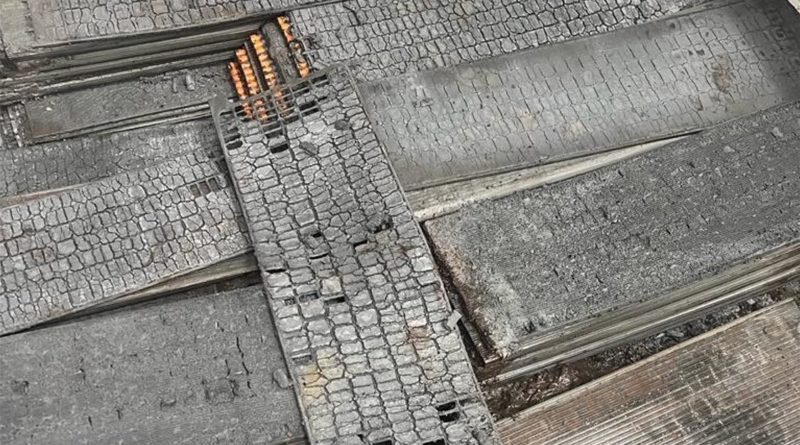The bike industry’s stance on battery repair explained
To the surprise of some, it is currently the case that the bicycle industry in the EU is not yet in favour of repair of batteries for electric bikes, as foreseen in the European Battery revision proposal. In a call with CI.N, CONEBI’s Manuel Marsilio explains why that is…
CONEBI is the umbrella for national industry and trade bodies across Europe; a hub for knowledge sharing and best practice across all things legislation, standards creation and plenty more. Recently it met with the European Commission to discuss an entirely separate topic to that discussed in this article, but nonetheless critical to safeguarding the future of our industry. There are few subjects where it is not the critical link between industry an policy makers.
Since the industry umbrella’s position paper on battery repair came to light there have headlines that might have folk jump to conclusion that the bike industry is anti-repair. On appearing in a Dutch publication came with a (now deleted) headline “How eBike manufacturers thwart the repair of your bicycle battery.” Though providing some context in the body of the article, some deeper insight on why that may be was required.
So, what’s the bike industry’s true stance?
CONEBI’s General Manager Manuel Marsilio explains how the issue is both complex and is taking some time to find the perfect long-term answer where sustainability is matched to safety.
He told CI.N: “The bicycle industry is one of the most repair-friendly industries. This is why we hope the message of ‘please do not repair batteries’ will be heard clearly, as it is one that the bicycle industry is not taking lightly.
“A clear differentiation needs to be made in terms of reparability: the vehicle is very repairable, including the battery pack, because the battery pack is a spare part that can be exchanged for a new battery pack. “To repair batteries means to change the certified and tested state of the manufacturer, meaning that safety relevant features might have been broken during the process (think about the water-tight seal, or the connections of the cells). Original safety tests are not valid anymore because components have been changed and original components already aged.”
This is where the issue of industry reputation arises. Type eBike fire into Google News and the headlines are eyebrow raising. Few give the level of detail as to what caused the fire as is arguably needed; not all eBikes are created, nor maintained equally.
That point is one that the UK bike business is coordinating to address. In November, in response to a string of inner city building bans for eBikes in reaction to such headlines, businesses with interests in the eBike world sought to emphasise a message that even the London Fire Brigade has highlighted – that is that the majority of fires have begun as a direct result of tampering with battery setups, electrics, or where modification kits have been tacked on to tamper with the manufacturer’s default and legally relevant speed or power settings.
Media headlines, generally, have not gone into such detail to differentiate between an often illegally modified electric bike and a manufacturer’s own factory model, which will have gone through stringent safety checks. For this reason, there is now hope that the European Commission can be encouraged to ban the sale of kits that circumvent manufacturer settings and ultimately cause dangers.
These two issues – battery repair and chip kits – deliver essentially the outcome; lack of safety and some very bad, but unfair press. So, the bike industry is keen to defend itself before more bans land and the eBike transport movement is stunted by poorly understood HR decisions at places of work.
Manuel continues: “Lithium-ion batteries are classified as dangerous goods for a reason (transportation tests have to comply with UN-T 38.8.3), and that this is why producers take a strong stance to ensure only state-of-the-art batteries that comply with all relevant laws are being put on the market.”
So, what is the cycle industry doing to address the issue of sustainability, a subject that is, rightly, not going away?
Manuel says it is as follows: Sustainability is a fundamental objective for the industry.
*Sustainability is discussed, developed and implemented from many points of view, and within this picture consumer safety comes first
*In the meantime, the bike business is involved in standardisation activities related to the evaluation of possible repair activities of Lithium-Ion batteries. The rationale is to find what components could be replaced / repaired, but only by authorised repair entities
*There is no outcome yet, but the overarching goal is to keep the battery safe, which means the consumer is safe.
“So, battery experts are already working on developing a strict set of rules to define a certified process of repairing eBike batteries in applicable cases while keeping safety, type approval and all necessary certifications in mind,” he concludes.
This is also written in the CONEBI position paper, readable in full on the website.
It is worth noting that some manufacturers are keen to get out ahead of the issue, for example Specialized has partnered Ecolamp Recycling Solutions to ensure its end-of-life batteries are recycled (not repaired).
There are also now several emerging industrial scale businesses, such as Technology Minerals, who supplied us the imagery seen here, offering to take and recycle electric bike batteries en masse at a growing number of domestic plants.
Whether the bike industry could select such partners as a central point for battery repair or recycling was put to CONEBI and Marsilio said: “Collection and recycling of eBike batteries at their end-of-life is inevitable, using the collection (and recycling) schemes that the eBike industry has developed together with professional collection agencies and recyclers on the one hand, as well as their suppliers and retailers on the other hand. These schemes ensure that batteries and the raw materials used within are finding their way back into the circular economy loop in a safe and controlled manner. This is already happening, thanks as well to the coordination with the CONEBI’s national industry member organisations.’’



